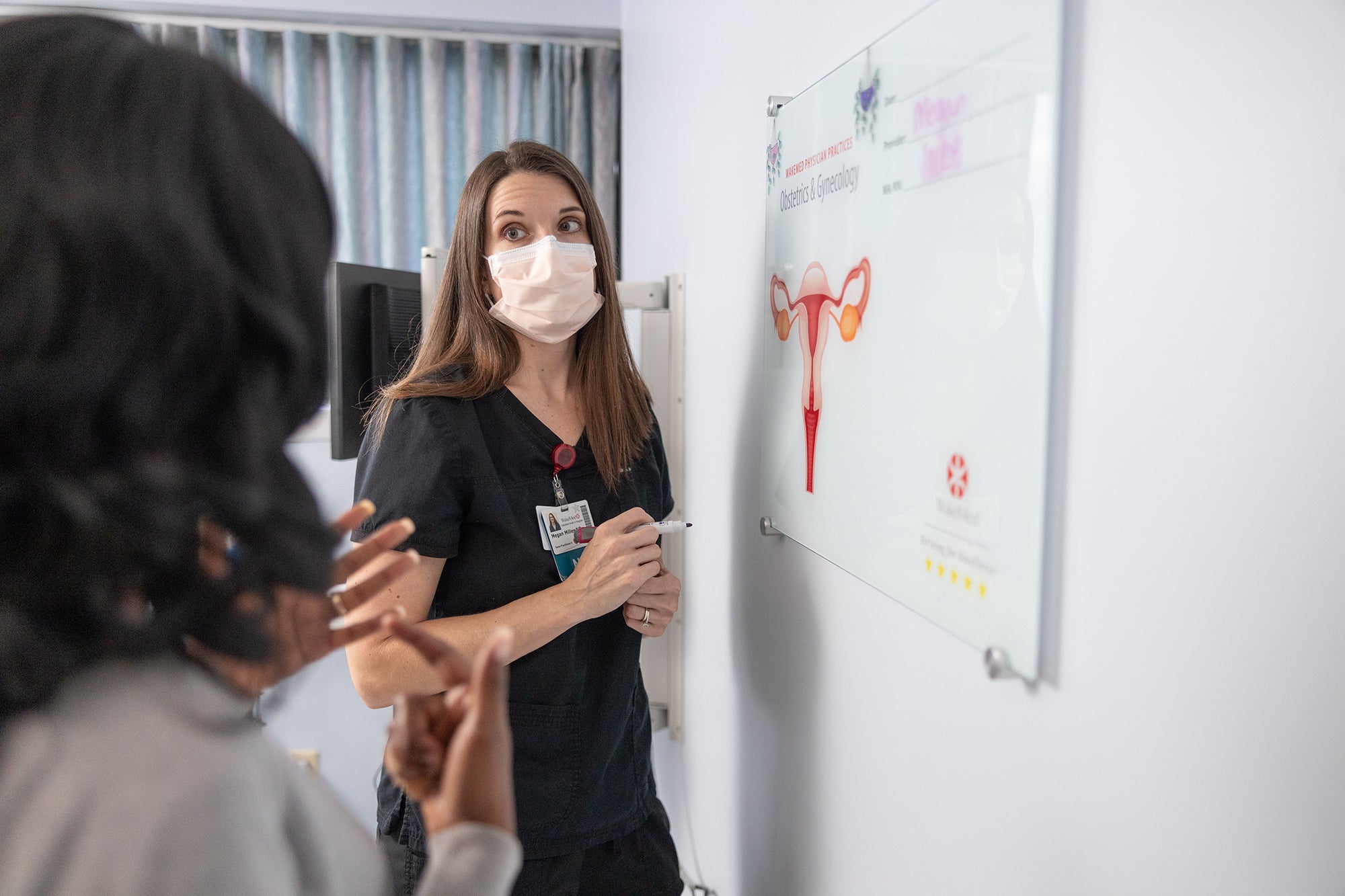Let's Talk About Sex: Understanding Female Sexual Dysfunction
May 22, 2022
By: Andrea Crane MD
Categories: Urogynecology, Women's
Female sexual dysfunction (FSD) is a widespread problem that has been estimated to affect up to 40% of women.
It has far-reaching effects on a woman’s life, which may include impaired body image and self-worth, as well as relationship discord. Unfortunately, only a small percentage of women seek medical attention.
Female sexual function — what could possibly go wrong?
Female sexual function is a complex process involving neurovascular function that is regulated by hormones and psychologic factors. There are multiple neurotransmitters in the brain that can increase or decrease sexual desire and function. Hormones, particularly estrogen, are important modulators in this process.
Decreased estrogen levels lead to physiologic changes in the vagina such as:
- Thinning of the tissues
- Decreased elasticity
- Reduced blood flow to the area
- Less lubrication
Psychologic factors also play a pivotal role. Depression, anxiety, sexual or emotional abuse, and stress often trigger sexual dysfunction.
Defining FSD
Dysfunction can be categorized into 3 types of disorders:
- Lack of sexual desire/arousal
- Pain with penetration
- Difficulty achieving orgasm
Women may have more than 1 disorder. More than 50% of women with sexual pain will also have lack of desire or avoidance secondary to the fear of pain.
The fear of pain manifests as less lubrication (from decreased arousal) and tension of the pelvic muscles, which in turn could lead to more pain with sex.
Pain with sex may have been initiated from:
- Infection
- Scar tissue from wound healing after childbirth or a surgery
- Pelvic floor muscle spasms
- Abnormalities of the bladder, bowel, or female organs

Are there any treatment options?
Treatment for FSD depends on the underlying cause of the disorder and may include:
- Sex therapy counseling
- Home exercise programs with devices
- Physical therapy
- Medications
- Nerve blocks
Increasing sexual desire and arousal is a complex issue but there are some products available to help women in this.
Topical, Non-Prescription Products
Topical non-prescription products such as Zestra® essential oils and performance enhancers from companies such as Pure Romance, Inc and Adam&Eve® are available to aid in increasing arousal.
Pain from vaginal dryness is common in women particularly those who have undergone menopause and have decreased levels of estrogen to the vagina area. The use of non-prescription artificial lubrication and vaginal moisturizers such K-YTM Jelly, Astroglide®, YES®, and Neogyn may be helpful.
Prescribed Medical Products
If sexual dysfunction persists, a medical assessment and counseling should be done prior to obtaining any prescription medications.
Topical prescriptions from compounding pharmacies to increase blood flow to the vagina area and testosterone transdermal gel may be options for increasing sexual desire.
Addyi® (flibanserin) is the only FDA-approved treatment for pre-menopausal women who are experiencing severe low sexual desire that is not due to a medical or psychiatric condition, problems within the relationship, or effects of a medication.
Prescription medications that may help severe vaginal dryness include vaginal estrogen preparations whether it be creams, tablets, or rings, an oral selective estrogen receptor modulator (Osphena®), or a vaginal DHEA suppository (IntrarosaTM).
Procedures Available
Vaginal tissue remodeling through procedures with laser therapy (MonaLisa Touch®) and radio frequency energy (ThermiVa®) have become available in recent years and may be options for pain with sex.

Speak with Your Primary Care Physician First
Sexual pain occurring after vaginal trauma, after surgery, or from an underlying medical condition needs to be evaluated thoroughly. A primary care provider or gynecologist may do the initial assessment.
A referral may be sent to a physical therapist, pelvic pain specialist, or a urogynecologist/reconstructive surgeon for further evaluation and treatment.
 About Andrea Crane, MD, FACOG, FPMRS
About Andrea Crane, MD, FACOG, FPMRS
Dr. Andrea Crane is a board certified urogynecologist and female pelvic reconstructive surgeon at WakeMed with interests in comprehensive pelvic reconstruction, da Vinci® robot-assisted sacrocolpopexy, and sacral neuromodulation.
Dr. Crane’s training includes evaluation and treatment of childbirth trauma, advanced pelvic organ prolapse, urinary and fecal incontinence, mesh complications, and sexual dysfunction.
Learn more about urogynecology in Raleigh, NC, and schedule an appointment today.